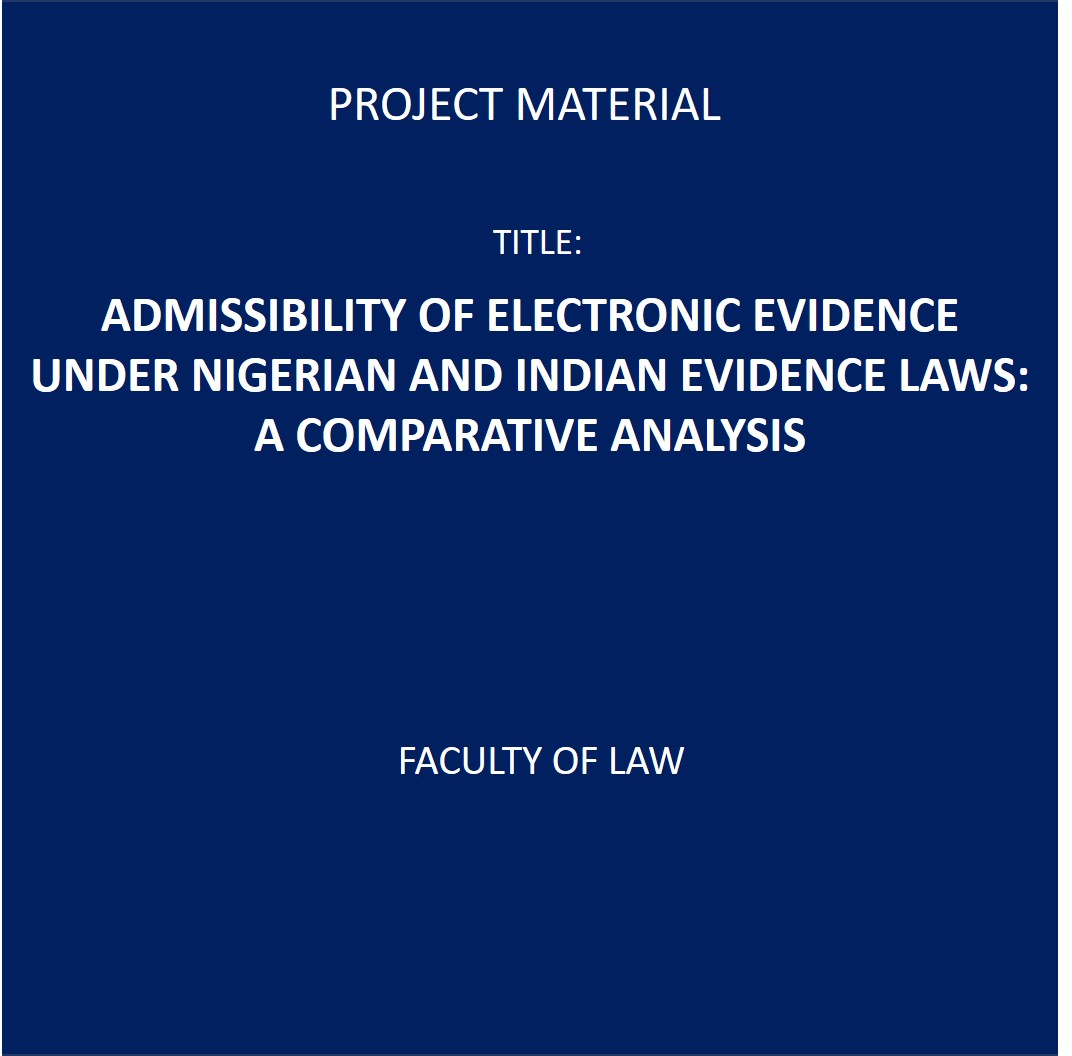No products in the cart.
ADMISSIBILITY OF ELECTRONIC EVIDENCE UNDER NIGERIAN AND INDIAN EVIDENCE LAWS: A COMPARATIVE ANALYSIS
₦10,150.00
ADMISSIBILITY OF ELECTRONIC EVIDENCE UNDER NIGERIAN AND INDIAN EVIDENCE LAWS: A COMPARATIVE ANALYSIS
- DEPARTMENT: LAW
- DEGREE: BACHELOR
- PROJECT YEAR: 2019
- NUMBER OF PAGES: 116
- FILE TYPE: PDF
ABSTRACT
The admissibility of evidence is always a delicate task for every court because of its implications for the attainment of justice in any given case. The global digital revolution of the 21st century has complicated things even further by giving birth to a new kind of evidence, called ‘electronic evidence’, which is fast replacing traditional forms of evidence in our courts today. Because of its unique nature and the ease with which it can be manipulated without trace, the admissibility of electronic evidence poses inherent evidential, procedural, and technical challenges for judges and lawyers alike. This has led many countries, including Nigeria and India, to enact unique rules guiding its admissibility. Nevertheless, in Nigeria, many of the challenges persist, necessitating solutions. It was against this backdrop that this work undertook a comparative analysis of the laws, practices and procedures regarding the admissibility of electronic evidence in Nigeria and India. The ultimate goal was to draw valuable lessons from India and other jurisdictions around the world that could help improve the Nigerian experience. In conducting this research, we adopted the historical cum comparative type of research within the wider framework of the doctrinal method of legal research. We inquired into and compared the evidentiary rules regulating the admissibility of electronic evidence in Nigeria and India as contained in statutes, judicial precedents, and secondary materials on the subject matter in both countries. It was our finding that the rules of admissibility of electronic evidence are quite similar in both countries, although many differences are also apparent. We observed that, relative to Nigeria, India has a substantially more sophisticated legal regime regulating electronic evidence. It was also our finding that the admissibility of electronic evidence in Nigeria is still plagued by a number of challenges, ranging from inadequacy and complexity of the applicable rules to poor appreciation of technology by judges and lawyers, and general technological backwardness. To circumvent these, we have recommended the amendment of the applicable rules to bring them up to speed with the prevailing global standard. We have also recommended the adoption of a liberal approach to the interpretation of the applicable rules, training of our lawyers and judges in basic computer skills, as well as general technological upgrade of our court system. In the final analysis, we contended that, despite the teeming challenges, the future of electronic evidence in Nigeria looks bright, especially if our recommendations are faithfully implemented.
No product has been found!
